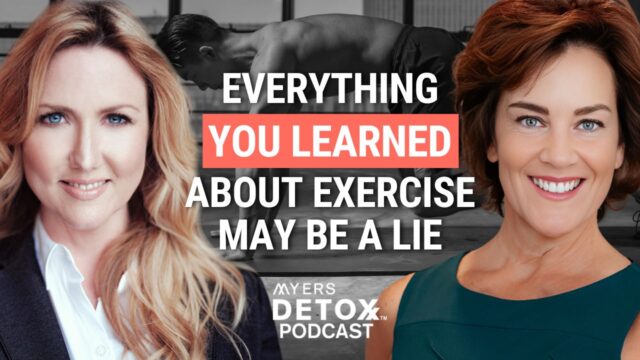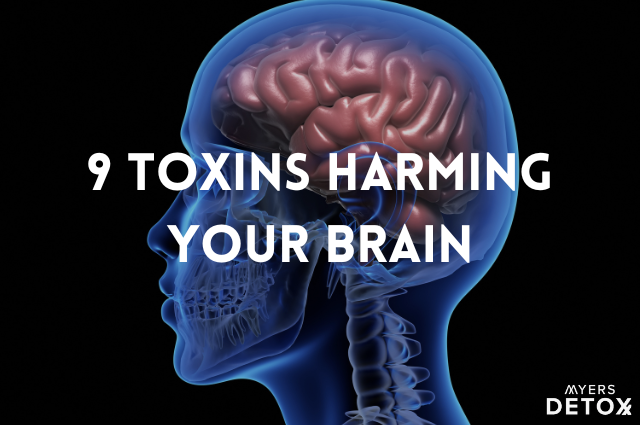Stress arrives in a thousand different forms: be it from work, money, a relationship, a lost cell phone or traffic. The dangers of stress are very real – stress kills. It can cause all kinds of health problems if left unmanaged.
Years of physical and emotional stress can deplete the body of nutrients, causing accumulation of toxic metals and industrial chemicals. It can also lead to adrenal fatigue, which is produced when your adrenal glands cannot adequately meet the demands of stress. They then suffer an inability to produce adequate levels of hormones — the hormones the body uses to communicate and function.
The stress response is caused by the action of the adrenal hormones. The adrenal glands mobilize your body’s responses, via hormones, to every kind of stress, whether it’s physical, emotional, or psychological. Most commonly associated with intense or prolonged stress, it can also arise during or after an illness, a life crisis, or a continuing difficult situation, draining the adrenal resources of even the healthiest person. Adrenal fatigue is extremely common due to our culture’s work ’til you drop the attitude, lack of relaxation, and other lifestyle factors, such as sleep deprivation, poor eating habits and excessive caffeine intake. For a more in-depth discussion on adrenal fatigue, check out my article on adrenal fatigue.
Recently, I was invited to contribute to The Adrenal Fatigue Solutions’s list of 50 Health Experts Share Their Favorite Stress-busting Tips. I am deeply passionate when it comes to spreading awareness on the dangers of stress and adrenal fatigue and was thrilled to be able to offer a bit of advice from my own life.
It may be impossible to avoid stress entirely, but we can learn to cope with it when it arrives, instead of letting it overwhelm us and wreak havoc on our health. So next time you feel stressed out, use one to the tips below to help manage it and protect yourself from the dangers of stress!
1. Supplement Your Minerals!
 One of the biggest stressors on the body is mineral deficiency. Improving mineral status also helps with the body’s response to stressors. Many people take minerals, but I rarely see someone who is taking enough, the right forms or the right ratios of minerals. Myers Detox can set you on the path to proper supplementation.
One of the biggest stressors on the body is mineral deficiency. Improving mineral status also helps with the body’s response to stressors. Many people take minerals, but I rarely see someone who is taking enough, the right forms or the right ratios of minerals. Myers Detox can set you on the path to proper supplementation.
No matter how healthy you eat or take care of yourself, you CANNOT achieve true health unless you purge heavy metals and environmental chemicals (major stressors) from your body and replenish lost minerals. Everyone has toxic metals and chemicals embedded in their tissues and must actively purge them from their body. This is the only way to truly reverse disease, heal the body and meet your health goals. Today, a healthy diet and lifestyle alone are not enough to achieve optimal health given the levels of toxins in the environment and our bodies. The soils are depleted, thus our food is depleted.
My Myers Detox Protocol heals the body by simply giving the body what it needs nutritionally and removing heavy metals and chemicals interfering in the body’s metabolic function. Give the body what it needs, remove toxins and the body heals itself. It’s simple and it works. The Myers Detox Protocol will do far more than symptom removal and reverse disease, it will vastly improve your vitality, energy, mood, mental functioning and more. All with just minerals!!
2. Heat Up with Infrared Sauna Therapy!
 Stress activates the sympathetic nervous system – the fight or flight part of your nervous system. To combat stress, you must tap into your parasympathetic nervous system. This is the aspect of your nervous system activated when you sleep or digest food. You must activate this part of your nervous system to detox.
Stress activates the sympathetic nervous system – the fight or flight part of your nervous system. To combat stress, you must tap into your parasympathetic nervous system. This is the aspect of your nervous system activated when you sleep or digest food. You must activate this part of your nervous system to detox.
One of the best ways to access or activate this part of your nervous system is with a near infrared sauna. A near infrared sauna is comprise of 3-6 red infrared bulbs in an enclosure. This is one of the best methods to activate the parasympathetic nervous system, destress, calm the mind and sweat out dozens of heavy metals and hundreds of chemicals. You can’t do anything healthier for your body! I sit in my sauna for an hour at least 5 days a week!
Looking to get one of your own? I have many different kinds including a single bulb and a fully portable sauna you can put in your bathroom! Look no further than the sauna models in the Myers Detox store!
3. Eat Clean and Rest Easy
by Carolyn Scott-Hamilton
Nutritionist, Chef, Author, Media Personality/TV Host, Speaker
HealthyVoyager.com
 We all battle with our own versions of stress. From our jobs to our families to travel to traffic, stress creeps in from every angle. I am no stranger to stress but over my years of studying holistic nutrition and promoting healthy living with my clients and readers, I would say the following are my little gems that help keep the stress monster at bay!
We all battle with our own versions of stress. From our jobs to our families to travel to traffic, stress creeps in from every angle. I am no stranger to stress but over my years of studying holistic nutrition and promoting healthy living with my clients and readers, I would say the following are my little gems that help keep the stress monster at bay!
Eat clean. The more pure and natural your food, the less likely you will feel the physical and mental effects of stress. Steer clear of excessive caffeine, stimulants, sugar, salt and chemical-filled foods, as all these wreak havoc on our bodies as well as on our mood.
Get rest. We all have busy lives but sleep is key to beating stress. Stick to a bedtime that will allow at least 7 hours of sleep and leave all internet devices in another room so you are not distracted from your time to relax.
Meditate. If even for 5 minutes, take time to sit quietly, alone with your thoughts. Learn to unplug.
Move. Exercise boosts endorphins, which boost your mood and helps to combat stress.
Find meaning in your relationships. Having a good support system and love in your life really gives you perspective on what is important and what is not worth stressing over.
4. Go Natural!
by Dr. Steven Hotze
Author, Radio Host, And Founder Of The Hotze Health & Wellness Center
Hotzehwc.com
 Chronic stress can wreak havoc on the body, from disrupting sleep and hormone levels to more serious conditions like infections, heart disease, cancer and stroke. Pharmaceutical drugs only mask symptoms and contain toxins with negative side effects.
Chronic stress can wreak havoc on the body, from disrupting sleep and hormone levels to more serious conditions like infections, heart disease, cancer and stroke. Pharmaceutical drugs only mask symptoms and contain toxins with negative side effects.
Take control with these tips to relieve stress, naturally:
- Build your arsenal: Vitamin C, magnesium, B-complex, GABA, 5-HTP, green tea, phosphatidyl serine, amino acid complex, rhodiola, and inositol.
- Evaluate for adrenal fatigue: Also known as chronic fatigue, adrenal fatigue is when the adrenal glands through chronic stress cannot meet the body’s demands for cortisol.
- Bioidentical cortisol can help the adrenal glands recover.
- Eat organic fruits and vegetables. Avoid processed food and sugars.
- Engage in exercise.
- Invest in good sleep to give your body a chance to restore itself.
- Close your eyes and breathe deeply for a minute. Repeat as needed.
- Write down your goals, what you want to achieve, and take action. This will give you peace of mind in knowing that you are working towards your goal.
- Declutter your home and work space. You will be surprised at how calm and in control you will feel.
5. Ground Yourself. Center Yourself.
 by Kelly Brogan, MD
by Kelly Brogan, MD
Holistic Women’s Health Psychiatrist
Kellybroganmd.com
When you feel stressed:
- Notice and acknowledge your discomfort.
- Relax and release it no matter how urgent it feels. Let the energy pass through you before you attempt to fix anything.
- Imagine sitting back up on a high seat, in the back of your head watching your thoughts, emotions, and behavior with a detached compassion.
- Then ground yourself. Connect to the present moment – feel the earth under your feet, smell the air, imagine roots growing into the earth from your spine.
Do this in a spirit of non-judgment because this isn’t an exercise done for mastery; it’s a decision that you make every time you feel disturbed inside.
Integrating these practices or routines into your life may do more than support longevity and optimal health. It may reverse chronic disease, eliminate the need for medications, and most importantly confer a greater sense of life satisfaction, happiness, and freedom to be here, in the present, where the wonder of this never-before-existent moment is unfolding before you.
6. Practice Mindfulness
by Megan Bruneau
Registered Clinical Counsellor And Blogger
Oneshrinksperspective.com
 As a mental health professional, I often get stressed about being stressed. I worry about the effect it’ll have on my health, and call myself a hypocrite for “not coping properly” So how do I deal with stress when it comes? I do the following:
As a mental health professional, I often get stressed about being stressed. I worry about the effect it’ll have on my health, and call myself a hypocrite for “not coping properly” So how do I deal with stress when it comes? I do the following:
First, I practice empathy and compassion toward myself. For example, “Megan, you’re feeling stressed out right now and that’s OK. You’ve got a lot going on, and stress is an inevitable part of life–it means you care about something.”
Then, I look at my expectations vs my reality. If my expectations exceed my reality, I see if there’s a way I can lessen the gap. This might require lowering my expectations, getting sh*t done, or a little bit of both. For example, let’s say I’m stressed about the three articles I have due that day, have to pack to go out of town for the weekend, and am supposed to attend a friend’s birthday celebration that night. I could either a) complete all tasks (which is unlikely) so my reality meets my expectations, b) choose not to do one or some of the tasks, so my expectations are lowered to a more manageable reality, or c) pack my essentials, knowing I’ll probably forget a couple of things, work on one of the articles and ask for an extension on the others, and pop by my friend’s birthday for an hour (or any combination of those two) to lesson the expectation-reality stress gap.
Next, I ask myself what’s in my control and what’s out of my control. Much of the time we stress about things that are out of our control (e.g. earthquakes, ending up alone, being judged by others), and it’s exhausting. Ask yourself what’s in your control and what’s out of your control. If what you’re stressing about is out of your control, try to let go and sit in that uncertainty with compassion.
Then, I ask myself “What’s the worst that’s going to happen?” Often we create a catastrophe in our minds about what might happen if we don’t get into the program/complete the project/lose the weight/pay the bill/etc. Rarely do we actually play out the likely scenarios. Yes, maybe you’ll have to reapply. Maybe you get reprimanded by your boss. Maybe you won’t fit into the dress you were hoping to wear to the wedding. But can you live with that? Often there’s more stress around the unknown than the known, so play out the scenarios and you might find they’re actually less catastrophic than you previously believed.
Finally, I practice mindfulness. I focus on my breath, the sights around me, a mantra like “Anicca” (impermanence), or do a few sun salutations. I ensure I practice non-judgment and compassion while doing so. All the while, I remind myself that reality is subjective, I have the freedom to spend mine how I choose, and I give myself permission to be in the moment. Personally, I find these strategies helpful in changing transforming debilitating stress into more productive stress.
7. Let it go? Don’t even pick it up.
by Ed and Deb Shapiro
Authors, Bloggers on Oprah.com & Huffingtonpost.com, Meditation Experts, Corporate Coaches
Edanddebshapiro.com
 When situations or emotions are running high it’s easy to say, “Just let go.” But once something has been picked up and reacted to then it’s already affecting us, so letting go doesn’t always work. Once, we were disagreeing and getting heated with each other, when a wise friend said, “Can’t you just laugh?” It reminded us that the ego loves to be right, easily over-reacts, and clings to itself. So instead of letting go we prefer, “Don’t even pick it up.” This allows us to stay mindful, objective, and for the ego to lose its grasp. It also enables us to not take ourselves too seriously and to remain good friends. Our guru is Lord Teflon, as nothing sticks to Teflon!
When situations or emotions are running high it’s easy to say, “Just let go.” But once something has been picked up and reacted to then it’s already affecting us, so letting go doesn’t always work. Once, we were disagreeing and getting heated with each other, when a wise friend said, “Can’t you just laugh?” It reminded us that the ego loves to be right, easily over-reacts, and clings to itself. So instead of letting go we prefer, “Don’t even pick it up.” This allows us to stay mindful, objective, and for the ego to lose its grasp. It also enables us to not take ourselves too seriously and to remain good friends. Our guru is Lord Teflon, as nothing sticks to Teflon!
8. Check your body language!
by Janine Driver
Keynote Speaker, NY Times Best-Selling Author, President of the Body Language Institute
Lyintamer.com
 Just before going to important meetings I stay off my iPhone and/or my tablet and here’s why: Social Psychologist Amy Cuddy from Harvard University’s Business School conducted an experimental study, “iPosture: The Size of Electronic Consumer Devices Affects Our Behavior.” This study proved that the body posture that comes from operating everyday gadgets affects not only your back, but your demeanor. Cuddy concluded that being on your cellphone causes you to shrink yourself which can decrease confidence and increase stress. This is not ideal before going into an important meeting or giving a speech. Instead, if you need to send emails or check documents, try to use a larger screen like a desktop computer. By doing this it causes you to act more assertively than working on you iPhone or iPad.
Just before going to important meetings I stay off my iPhone and/or my tablet and here’s why: Social Psychologist Amy Cuddy from Harvard University’s Business School conducted an experimental study, “iPosture: The Size of Electronic Consumer Devices Affects Our Behavior.” This study proved that the body posture that comes from operating everyday gadgets affects not only your back, but your demeanor. Cuddy concluded that being on your cellphone causes you to shrink yourself which can decrease confidence and increase stress. This is not ideal before going into an important meeting or giving a speech. Instead, if you need to send emails or check documents, try to use a larger screen like a desktop computer. By doing this it causes you to act more assertively than working on you iPhone or iPad.
Power poses. There are a few different power poses that I like to do before important meetings or conversations. My favorite is the Superman pose, when you put your hands in your hips with your elbows out to your sides. These power poses increase testosterone and decreases the cortisol, the stress hormone, in your body. Amy Cuddy proved the positive effects of adopting expansive body postures – hands on hips, feet on desk, and the like during a 2010 report by Andy Yap, Cuddy and Dana Carney, “Power Posing: Brief Nonverbal Displays Affect Neuroendocrine Levels and Risk Tolerance.” Deliberately positioning the body in one of these “power poses” for just a few minutes actually affects body chemistry, increasing testosterone levels and decreasing cortisol levels. This leads to higher confidence, more willingness to take risks, and a greater sense of well-being. Great for stress!
When you clap and rub your hands together, this movement sends a message to the brain that success is coming. It gets it excited! I especially like this move when I’m uncertain about a situation and am nervous or stressed about how it’s going to turn out. I’m literally tricking my brain into thinking there will be great success.
9. Ask: “What Are You Grateful For?”
by JJ Virgin
Celebrity Nutrition & Fitness Expert, NY Times Bestselling Author
JJvirgin.com
 In September 2012, my teenage son Grant became the victim of a hit-and run-driver and left for dead in the street. Over those next weeks, I sat with him in the ICU while he was in a coma, followed by months in the hospital for recovery.
In September 2012, my teenage son Grant became the victim of a hit-and run-driver and left for dead in the street. Over those next weeks, I sat with him in the ICU while he was in a coma, followed by months in the hospital for recovery.
Grant’s tragedy occurred while I was launching what would become my New York Times bestseller The Virgin Diet. I had publishers, readers, and an entire team depending on that book. As the sole supporter for my family, I also depended on its success financially.
Needless to say, my ability to tolerate stress became challenged during this extremely difficult time.
To juggle those daunting responsibilities, I had to be at my best. That entailed clean eating, supplements, exercise, and at least 7 hours’ sleep every night.
All those things helped, but I found practicing daily intentioning most helpful to manage stress.
Every morning, I write what I feel grateful for as well as my short- and long-term goals. I call these “stretch goals.” In Grant’s case, that involved him becoming his healthiest, most vibrant self. I intentioned Grant being even better than before the accident, 110% improvement.
Then I share these with others to gather support and stay positive as intentions become reality.
My family is living proof intentioning works. Grant is on his way to complete recovery – actually becoming better than before – and continues to inspire others to become their best selves.
10. Nurture Your Mind, Body, and Spirit
by Diane Sanfilippo
Certified Holistic Nutritionist, Best Selling Author, Holistic Lifestyle Coach
Balancedbites.com
 You don’t have to let stress overwhelm you. You can be proactive by avoiding toxic situations, people, dietary choices, and other stressors that you have control over. Nurture your mind, body, and spirit with these easy tips:
You don’t have to let stress overwhelm you. You can be proactive by avoiding toxic situations, people, dietary choices, and other stressors that you have control over. Nurture your mind, body, and spirit with these easy tips:
- Eat real food—quality proteins and fats with a variety of organic fruits and vegetables; starch as needed for pre/post workout energy and recovery. Avoid nutrient poor refined foods and beverages. Drink pure water.
- Include stress supporting nutrients:
Vitamin C – Citrus, strawberries, kiwi, cruciferous vegetables and green leafy vegetables.
Vitamin B Complex– Liver, meat, seafood (wild/pasture raised, grass-fed sources), seeds, mushrooms.
Magnesium – Green leafy vegetables, pumpkin seeds, sesame seeds/tahini, and salmon.
Omega 3 EFAs – Fatty cold water fish (salmon, mackerel, herring, sardines, etc.) and/or Green Pasture fermented cod liver oil. - Season with mineral rich sea salt — supporting your adrenal glands.
- Prioritize sleep — allowing your body to rest, restore, and detoxify optimally.
- Avoid over-training — balance workouts with restorative exercises such as Qigong, meditation, walking, and yoga.
- Use non-toxic personal care, cookware, and cleaning products.
- Keep a gratitude list.
- Always plan for new adventures!
*Bonus tip!* Don’t Forget to Breathe!
by Dr. Deanine Picciano
Doctor Of Oriental Medicine, Acupuncture Physician, Specializing In Women & Children’s Health
Drdeanine.com
 Lets face it. Optimal health does not just depend on how perfect your diet is, or on taking a particular supplement or herb. Although all that can help, it is ultimately how you handle stress and your thoughts that also influence your state of health.
Lets face it. Optimal health does not just depend on how perfect your diet is, or on taking a particular supplement or herb. Although all that can help, it is ultimately how you handle stress and your thoughts that also influence your state of health.
We cannot control everyone, everything, or what happens to us. We know that. We sometimes cannot control how we respond in our body, especially on a subconscious or visceral level, to the events that occur in our lives. But we can breathe through it in a way that keeps us in the driver’s seat.
One of the most powerful ways you can stay centered and counteract the physical effects of stress is to breathe optimally. Breathing deeply affects your life force and how it flows. When the “fight or flight” aspect of your nervous system is on, your body perceives you are under attack, and breath often becomes shallow and chest-centered. Breathing deeply, or diaphragmatic “belly breathing”, can lower cortisol and signal to your nervous system to “rest and digest” as opposed to “fight or flight.”
A true functional, relaxing breath starts slowly in the lower belly and moves upward toward the heart. Like water filling a vase, your breath should fill in the bottom of your belly first and move up to the chest. If you notice that you are not breathing optimally, it is probably because your midsection, diaphragm or chest feels tight. A key piece of enhancing your capacity to breathe is to release the tight diaphragms and muscles that are preventing you from full, optimal breathing. Releasing a tight diaphragm or muscle can be accomplished by intention, a stretch, yoga postures, bodywork or acupuncture or having a CranioSacral Treatment.
Connecting with deep breathing is the key to power in the present moment and sets the foundation for healing. So next time you feel stressed, BREATHE, be the vase, stay centered and let it go.
Read about 50 more tips to reduce stress and heal adrenal fatigue here!









